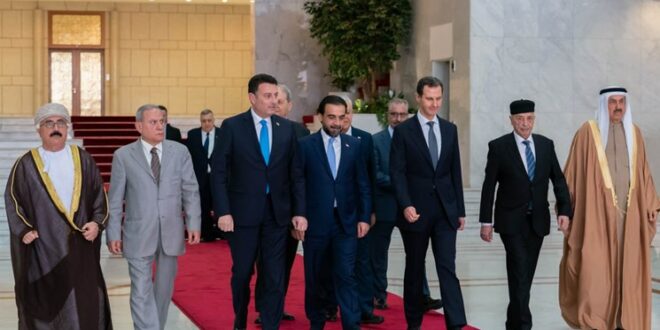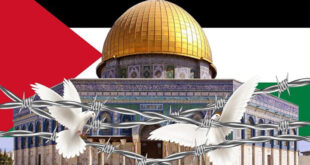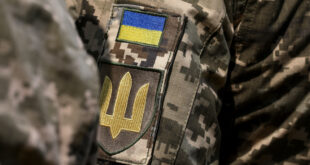Article: The traffic of Arab meetings in Damascus instead of Tel Aviv, why?
Original article’s published date: March 4, 2023
Iran is the heart and head in the region of West Asia. It would be a big mistake if in the analysis and judgment of the country’s power ability and position of the Islamic Republic, we accept the existence of some problems.
Fars news; Note – Saadullah Zarei: Iran is the heart and head of the West Asia region. It would be a big mistake if, in the analysis of the power ability and position of the Islamic Republic, we put the considerable existence of some problems. Forty-four years of the West struggling with Iran and the unendingness of this confrontation shows Iran’s strength and position.
The West has never attributed Iran’s weaknesses to this issue. This rule also applies to any other powerful country; No powerful country is without a weak point, nor are the weak points in its geographical environment considered a sign of its weakness. Iran’s power is measured by its influence on the international and regional parameters and the process of this influence.
An example of this power is Iran’s influence on the Syrian case and, in other words, on the Arab world.
As you have heard in the news, during the past month, some Arab countries have formed in Damascus, trying to restore political relations with Syria! Which Syria is this? The same Syria where they spent billions of dollars to overthrow the government of a bigger group, only for the crime of being united with the Islamic Republic of Iran. Unity of two countries Islamic Republic of Iran and the Syria Arab Republic remains, and the slightest change has not occurred in it. But the Arab countries that are enemies of Syria have lined up to re-establish relation with it. There is something necessary to say in this regard:
1- The war against Iran from 1980 to 1987 was designed and pursued with the aim of the fall of the Islamic Republic. Almost all Arab countries participated in it, and to achieve the goal. Various facilities were used, such as the handing over of islands by Kuwait and Jordan, authorization of fighters by Egypt, Jordan, and Saudi Arabia, the proxy sale of oil to Iraq by Jordan and Saudi Arabia, and the donation of tens of billions of dollars by almost all Arab governments.
In this cruel war, Syria was the only Arab country that sided with the Islamic Republic at the price of buying the anger of the Arab countries against Damascus. At the end of the war, the Arab countries, whose funds were lost in the war with Iran, waited to destroy the Syrian political system at the right time, and we saw what they did to the people and government of Syria when this opportunity came. One of these cases was sending wild terrorist groups that did not show mercy to Syrians. Another case was the imposition of hundreds of billions of dollars on Syria.
2- A heavy war against Lebanon was launched in the summer of 2005 to eliminate the most important threat to the Zionist regime. Also, in this war, the Arab countries agreed to destroy Hezbollah at any cost, even to Lebanon’s destruction. Ayatollah Seyyed Hassan Nasrallah said, referring to verse 11 of Surah Ahzab, life had reached our throats. During this war, about 3000 square kilometers in the south of Lebanon was destroyed by missiles and bombs, enough to plow six times the country’s scale!
The documents say, this war was started at the request and insistence of Saudi Arabia and after the consecutive meetings of Bandar Bin Sultan, the head of the dreaded Saudi intelligence agency at the time, and with the military and security authorities of the usurping Israel and funding of its expenses. The Saudi hatred against the people of Lebanon and Hezbollah was so dense that Al-Sheikh, the Wahhabi cleric of Saudi Arabia, declared it forbidden to pray to save the oppressed people of Lebanon from this war!
In this war, more than one million Lebanese Arabs were displaced, and hundreds of them were martyred. In this war, the only Arab country that stood by the oppressed was Syria. Despite knowing the high cost of standing by Lebanon, Damascus opened its borders and ammunition depots to the Lebanese resistance and prevented the Israeli-Western-Arab conspiracy against Lebanon from coming to fruition.
About seven months after this war, the Israeli Vinograd Committee was formed to investigate the reasons for the defeat of the Israeli Army and the continuation of the Lebanese resistance, clearly stating that Syria’s aid to the Lebanese resistance prevented the victory of the Israeli Army. Here, the Israeli-Arab joint front looked for an opportunity to show its deep hatred towards the Syrian regime and people, and it showed it firmly.
3- The dense Western Arab front did everything it had in its pocket and inflicted fatal blows on Syria. Hamad bin Jassim al-Thani, the prime minister of Qatar from 2007 to 2013, on 14 April 2016, in an interview with the Financial Times newspaper, said, “What happened in Syria was a kind of international game, and the United States gave Saudi Arabia and Qatar the green light to intervene in Syria.” Roland Dumas, the foreign minister of France from 1984 to 1993, said in a television interview, “England was ready to attack Syria two years before the beginning of the Arab Spring.”
The chaos caused by riots in Arab countries made this possible. But in this scene, Iran sided with Syria and did not doubt from the first moment that a big conspiracy was launched against its ally that must be restrained by force. In a short period, the Revolutionary Guards and the Lebanese Hezbollah got ready to confront against this satanic conspiracy.
The severity of Western, Hebrew, Turkish, and Arab complicities against Syria and the degree of brutality of terrorist-affiliated groups were so great that no one imagined that the country of Syria would have an escape route. In this regard, Sheikh Hamad bin Jassim said in an interview with the official Qatar TV channel on November 4, 2017, “Bashar Assad was our friend. We had no personal differences with him, but we were all chosen by Saudi Arabia on the advice of the United States to be at the front deployment of the Syrian crisis, I went to Saudi Arabia to tell King Abdullah the details of the events.
He said, “We are with you. Follow up on the issue, and we are in harmony with you, but let the affairs be in your hands.” Erdogan was asked to open his borders with Syria, and Turkey did so with the agreement of the United States so that Turkey’s borders would be a passage for arms, money, and armed forces to Syria. Whenever the supports sent to Syria, they first entered to Turkey, coordinated with the Americans, and then delivered to Syria. Whatever wanted to be distributed in Syria was done through the American and Turkish forces, us and the Saudi brothers.” During this war, the terrorists also used chemical substances in Khan Asal.
But despite all the speculations, the Syrian political system overcame the barbaric front, and this time the Arab countries faced a heavy defeat. During the war with Syria, Saudi Arabia had to fight with Yemen. A fierce conflict happened between Saudi Arabia and Qatar that smelled of war. Relations between Pakistan and Saudi Arabia fluctuated considerably; the relationship between Saudi Arabia and Egypt suffered major problems; the relations between Turkey and Saudi Arabia were messed up, and the relations between Jordan and Saudi Arabia were in trouble. Instead of Syria’s disintegration, the opposite front suffered a collapse and successive crises.
4- In the past month, the foreign ministers of the UAE, Jordan, Egypt, and the presidents of the parliaments of Iraq, Oman, the Emirates, the Palestinian Authority, Libya, Egypt, and Lebanon have visited Damascus and Bashar Assad traveled to Oman at the invitation of the King of Oman. The US Treasury had to suspend the embargo on economic and commercial transactions against Syria for six months.

Four years ago, the Nasib border crossing between Syria and Jordan, which is the most active Arab crossing for goods and products between the Shamat [1] and the Persian Gulf, was reopened. Turkish military-security officials met with Syrian military-security officials in Moscow, and Egyptian Foreign Minister Sam Shukri announced the desire of Arab countries to play a role in the “geopolitical chain of the Arab region centered on Syria. After the visit of the Arab parliamentary delegations to Damascus, various media spoke of the beginning of the zero-hour economic reconstruction of Syria.
We know the same grudge against Syria and its political system still exists. It is unlikely that Arab visits will lead to some acceptable results. Even if we ignore the depth of their hatred, the nature of the countries expected to participate in the reconstruction of Syria is not to invest in long-term projects. But those visits have a considerable effect on the people and government of Syria. There are more fundamental facts on that issue. Some media, including the Economist magazine, pointed out some of them last week.
The Arab countries and Turkey are lining up to rebuild the political relationship with Syria, which heralds a fundamental change. What we mean by this change is not a change in the status of Arab-Syrian relations but in the general situation that has sent the Arab countries to Damascus in a hurry not to stay away from the caravan.
In changing the environment of the international system, the movement of Iran and Russia towards strategic relationships on the one hand, and the movement of Iran and China to achieve strategic relations on the other hand, has changed the international relations form, especially Asian relationships in various fields. This issue entails the risks for those Arab countries still in the West Pole. Based on this, the Arab countries, while trying to increase relations with China and Russia, have come to reduce differences with Iran and Syria. According to them, the Intra-Asian relationship is formed in the club composed of the opposing powers of West Asia.
Endnote:
[1] Shamat (land), a region in Southwest Asia; including the modern countries of Syria, Jordan, Lebanon, Palestine, Cyprus, parts of southern Turkey and eastern Egypt.
 Mouood Mouood English Edition
Mouood Mouood English Edition




